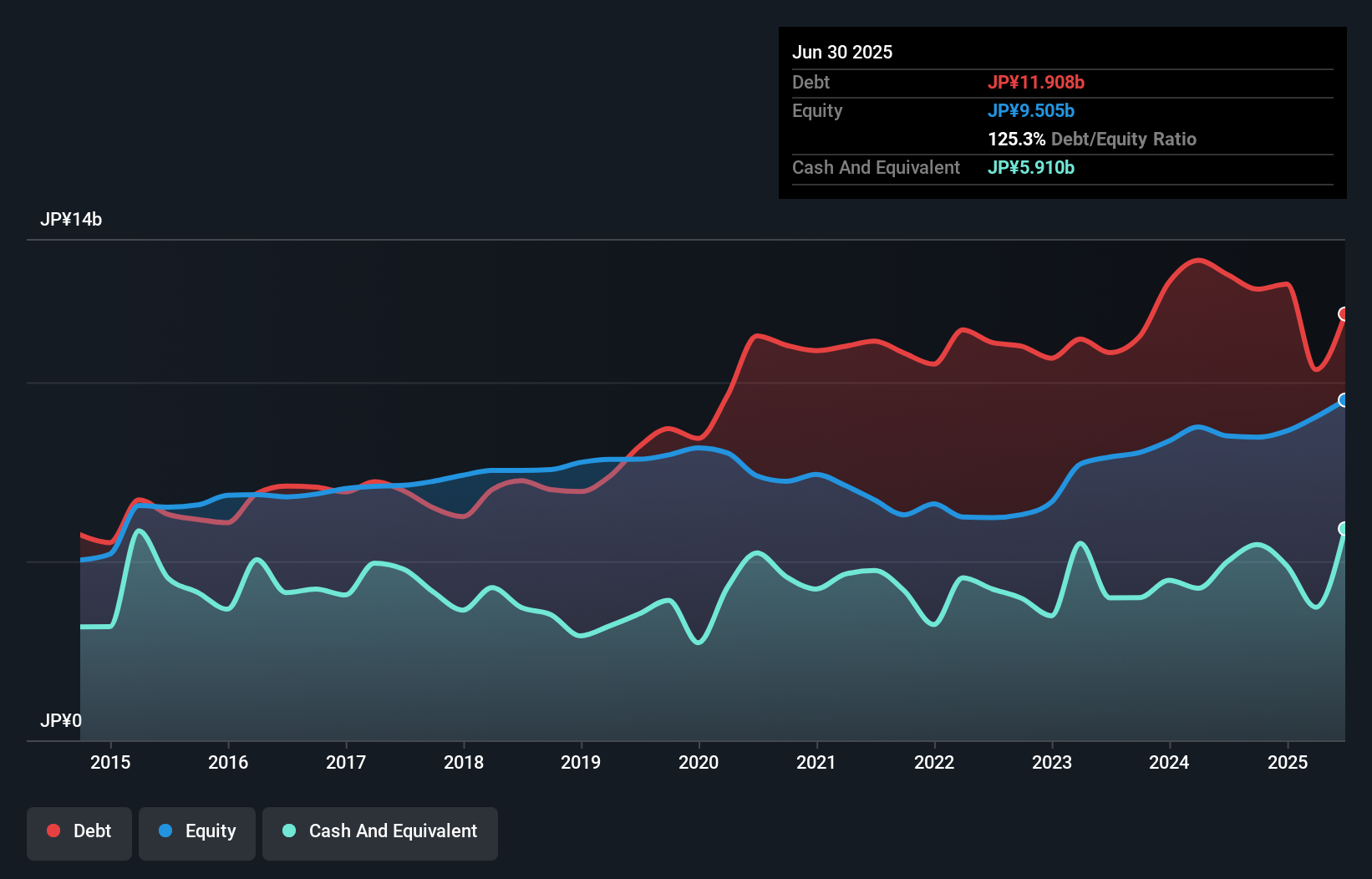We Think Delica Foods Holdings (TSE:3392) Can Stay On Top Of Its Debt
Legendary fund manager Li Lu (who Charlie Munger backed) once said, 'The biggest investment risk is not the volatility of prices, but whether you will suffer a permanent loss of capital.' So it seems the smart money knows that debt - which is usually involved in bankruptcies - is a very important factor, when you assess how risky a company is. We can see that Delica Foods Holdings Co., Ltd. (TSE:3392) does use debt in its business. But the more important question is: how much risk is that debt creating?
Why Does Debt Bring Risk?
Generally speaking, debt only becomes a real problem when a company can't easily pay it off, either by raising capital or with its own cash flow. If things get really bad, the lenders can take control of the business. While that is not too common, we often do see indebted companies permanently diluting shareholders because lenders force them to raise capital at a distressed price. Of course, debt can be an important tool in businesses, particularly capital heavy businesses. When we think about a company's use of debt, we first look at cash and debt together.
What Is Delica Foods Holdings's Debt?
The image below, which you can click on for greater detail, shows that Delica Foods Holdings had debt of JP¥11.9b at the end of June 2025, a reduction from JP¥13.0b over a year. However, it also had JP¥5.91b in cash, and so its net debt is JP¥6.00b.

How Strong Is Delica Foods Holdings' Balance Sheet?
Zooming in on the latest balance sheet data, we can see that Delica Foods Holdings had liabilities of JP¥9.51b due within 12 months and liabilities of JP¥9.25b due beyond that. Offsetting this, it had JP¥5.91b in cash and JP¥5.60b in receivables that were due within 12 months. So it has liabilities totalling JP¥7.25b more than its cash and near-term receivables, combined.
This deficit is considerable relative to its market capitalization of JP¥11.8b, so it does suggest shareholders should keep an eye on Delica Foods Holdings' use of debt. Should its lenders demand that it shore up the balance sheet, shareholders would likely face severe dilution.
See our latest analysis for Delica Foods Holdings
In order to size up a company's debt relative to its earnings, we calculate its net debt divided by its earnings before interest, tax, depreciation, and amortization (EBITDA) and its earnings before interest and tax (EBIT) divided by its interest expense (its interest cover). Thus we consider debt relative to earnings both with and without depreciation and amortization expenses.
Delica Foods Holdings's net debt to EBITDA ratio of about 2.0 suggests only moderate use of debt. And its commanding EBIT of 22.9 times its interest expense, implies the debt load is as light as a peacock feather. Importantly, Delica Foods Holdings grew its EBIT by 98% over the last twelve months, and that growth will make it easier to handle its debt. The balance sheet is clearly the area to focus on when you are analysing debt. But it is future earnings, more than anything, that will determine Delica Foods Holdings's ability to maintain a healthy balance sheet going forward. So if you want to see what the professionals think, you might find this free report on analyst profit forecasts to be interesting.
Finally, a business needs free cash flow to pay off debt; accounting profits just don't cut it. So it's worth checking how much of that EBIT is backed by free cash flow. In the last three years, Delica Foods Holdings's free cash flow amounted to 43% of its EBIT, less than we'd expect. That's not great, when it comes to paying down debt.
Our View
Delica Foods Holdings's interest cover was a real positive on this analysis, as was its EBIT growth rate. Having said that, its level of total liabilities somewhat sensitizes us to potential future risks to the balance sheet. Considering this range of data points, we think Delica Foods Holdings is in a good position to manage its debt levels. But a word of caution: we think debt levels are high enough to justify ongoing monitoring. The balance sheet is clearly the area to focus on when you are analysing debt. However, not all investment risk resides within the balance sheet - far from it. We've identified 5 warning signs with Delica Foods Holdings (at least 1 which is potentially serious) , and understanding them should be part of your investment process.
Of course, if you're the type of investor who prefers buying stocks without the burden of debt, then don't hesitate to discover our exclusive list of net cash growth stocks, today.
New: Manage All Your Stock Portfolios in One Place
We've created the ultimate portfolio companion for stock investors, and it's free.
• Connect an unlimited number of Portfolios and see your total in one currency
• Be alerted to new Warning Signs or Risks via email or mobile
• Track the Fair Value of your stocks
Have feedback on this article? Concerned about the content? Get in touch with us directly. Alternatively, email editorial-team (at) simplywallst.com.
This article by Simply Wall St is general in nature. We provide commentary based on historical data and analyst forecasts only using an unbiased methodology and our articles are not intended to be financial advice. It does not constitute a recommendation to buy or sell any stock, and does not take account of your objectives, or your financial situation. We aim to bring you long-term focused analysis driven by fundamental data. Note that our analysis may not factor in the latest price-sensitive company announcements or qualitative material. Simply Wall St has no position in any stocks mentioned.
About TSE:3392
Delica Foods Holdings
Engages in the distribution of agricultural products in Japan.
Undervalued with excellent balance sheet and pays a dividend.
Market Insights
Community Narratives



